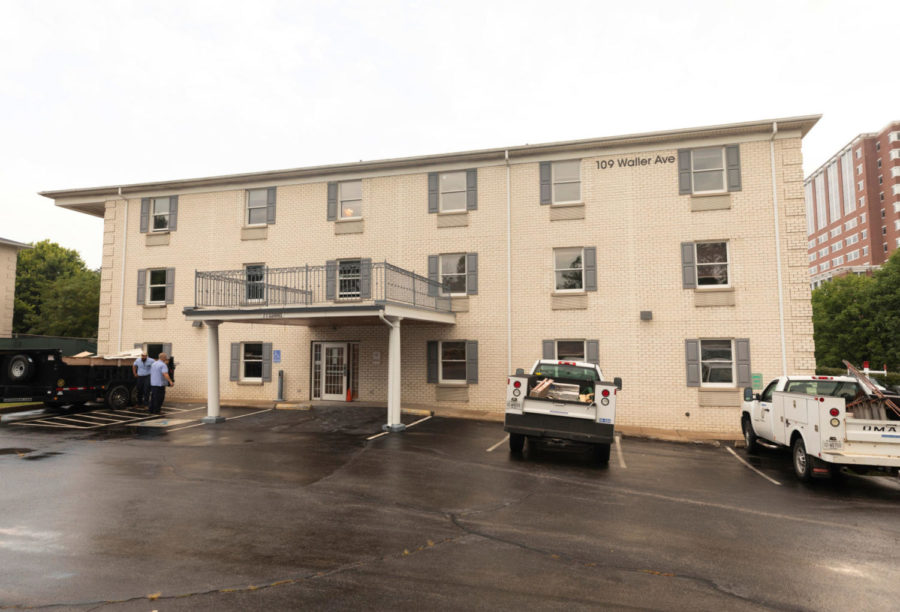UK manages short-term housing for students displaced by dorm shortage
September 4, 2019
UK students are still feeling the effects of a summer dorm overbooking that left hundreds of students displaced.
Nearly a month and a half after university officials announced that the dorms were overbooked, hundreds of students are still without the dorm room they signed up for, but have rather taken university-backed deals to live in near-campus apartments.
The university is housing displaced students in the University Inn located at the corner of Waller Ave. and Nicholasville Rd., the brand new near-campus Hub Lexington apartment complex and is still having some students share rooms with their resident advisers, UK spokesperson Jay Blanton said.
The University Inn, bought by UK Healthcare a few years ago, is now housing around thirty students who attend the Bluegrass Community & Technical College.
Along with this, the university reached out to the staff at Hub Lexington on South Upper in the interest of setting up another way for students who were set to live on campus to move off-campus.
A few weeks ago, 85 students, who were originally slated to live on-campus, were living in the apartments, said Benjamin Modleski, Chief Operating Officer for Core Spaces which operates Hub Lexington.
“They were offered a short-term lease that corresponds to the UK residence hall lease dates for rooms within a 4-bed unit,” Modleski said.
According to Blanton, those students were mostly returning students, who had previously been enrolled at the university. The students are also being given similar rates in price as they would have paid had they lived on-campus.
No concrete plans have been made to extend this current partnership out when the overbooking situation becomes fully resolved, although Hub Lexington is open for future partnerships, Modleski said.
Typically, resident advisers have their own rooms, but because of the dorm shortage, many have been asked to take a roommate. The number of resident advisers who have roommates is on the decline, with less than 70 RAs falling into this category–there were almost 90 over three weeks ago–and the number is expected to continue to decrease as the semester continues onward, according campus housing officials.
Campus housing officials anticipates this number will continue to drop all the way through the school year if it does not reach zero before that point.
Earlier this summer, the news broke that the University of Kentucky had overbooked itself by a few hundred students.
As a solution, UK Housing originally planned to transform some of the study rooms in residence halls into makeshift rooms and having freshmen live with their resident advisers.
One resident adviser anonymously set up an online petition in order to seek “the accommodations (the resident advisers) require to best serve residents,” adding in various potential solutions that could be considered in order to reduce the chances of (resident advisers) having to have roommates.
When UK Housing first became aware of this overbooking in mid-July, plans were made to not only transform the study rooms and to add other residents to resident adviser rooms, but to also seek out other potential solutions from outside housing partners.
As students began the process of moving into their on-campus suites, it became apparent that the study rooms throughout campus were no longer needed as overflow housing. Even so, resident advisers in many of the residence halls still had roommates, but it wasn’t the only solution implemented to offset the excessive numbers.
































































































































































